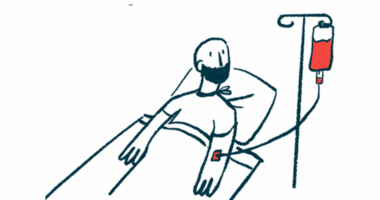Sometimes, looking at the half-empty glass is the best thing to do
To make progress, let's own up to the barriers that we with disabilities face

My husband, Jared, and I were recently captivated by the valedictory of Val Llamelo, the 2023 top graduate of the University of the Philippines. His address garnered widespread attention on social media for its criticism of “inspiration” and the societal issues it masks.
These points resonated deeply with Jared and me, considering our circumstances as people living with disabilities. While Jared copes with severe hemophilia and a seizure disorder, I grapple with attention-deficit/hyperactivity disorder and bipolar II disorder.
Untangling the notion of ‘inspiration’
During his address, Llamelo attributed his academic success to his determination to juggle multiple jobs alongside full-time studies. This precarious balance, he revealed, was essential for him to afford his education.
Nonetheless, Llamelo refused to be hailed as an inspirational figure. He sought instead to redirect attention from his individual accomplishment toward the systemic barriers that bar poor people’s access to quality education.
Llamelo’s discomfort with being regarded as an inspiration mirrors the phenomenon of “inspiration porn” within the disabled community. Many people with disabilities object to being reduced to mere objects of inspiration for nondisabled individuals. While our accomplishments are celebrated, the hardships we face are often overlooked.
Often, a person with a disability who achieves something deemed “exceptional” is labeled a beacon of inspiration. These triumphs, however, might be unremarkable for someone without a disability. In the hemophilia community, such achievements could include excelling in sports, launching a business, or securing well-paying jobs in fields where people with disabilities are seldom afforded opportunities.
Seeing the glass half-empty helps us acknowledge reality
Llamelo’s discourse unveils a stark reality embedded in our societal fabric. The adulation of “exceptional” people with disabilities and other marginalized groups masks the pervasive lack of support available to them. This fact perpetuates subpar living conditions, a lack of basic needs, and a high level of dependence on others, among other issues.
In our country, the Philippines, hemophilia groups relentlessly advocate for assistance from the national government and groups abroad. They do so in hopes of alleviating the financial strain of securing essential blood-clotting factor products and other medical care.
How wonderful it is to be optimistic about the potential of people with disabilities! I admit, I’m moved by feel-good stories about people with hemophilia chasing their dreams. But for Filipino people living with hemophilia like Jared, struggles continue to outnumber successes. Because medication is less available than it should be, the idea of a bleed-free month is an abstract concept even to those with a mild form of the condition.
As Llamelo astutely pointed out, optimism alone cannot address systemic issues. Of this, he said:
“Not all situations can be viewed through the lens of a half-full glass. Sometimes, looking at the glass half-empty is the better thing to do because it allows us to see the bigger picture and understand the systemic challenges faced by many. Using this half-empty perspective, it enables us to recognize the systemic root causes of our problems and challenge the status quo that perpetuates them.”
Change begins when we acknowledge our truth
We can dream of a future where more and more people with hemophilia can become national athletes, pursue fulfilling careers, and give hope to the next generation of those with the disease. But for this transformation to occur, society’s leaders must confront and tackle the current barriers hindering their progress.
Val Llamelo’s speech reverberates with a call to action. It implores us to acknowledge uncomfortable truths, to see beyond the surface, and to challenge the systems perpetuating inequality. As we move forward, we can remember that embracing the reality of a half-empty glass allows us to recognize the magnitude of challenges we face. From there, we can begin to make change.
Note: Hemophilia News Today is strictly a news and information website about the disease. It does not provide medical advice, diagnosis, or treatment. This content is not intended to be a substitute for professional medical advice, diagnosis, or treatment. Always seek the advice of your physician or another qualified health provider with any questions you may have regarding a medical condition. Never disregard professional medical advice or delay in seeking it because of something you have read on this website. The opinions expressed in this column are not those of Hemophilia News Today or its parent company, Bionews, and are intended to spark discussion about issues pertaining to hemophilia.







Leave a comment
Fill in the required fields to post. Your email address will not be published.